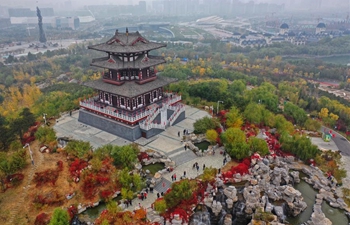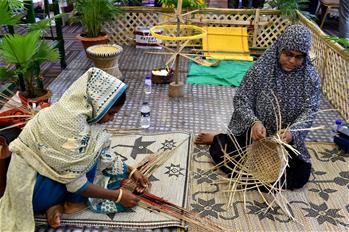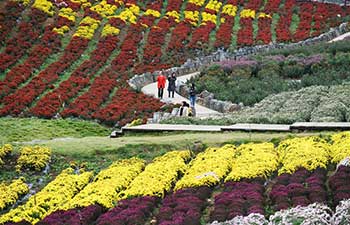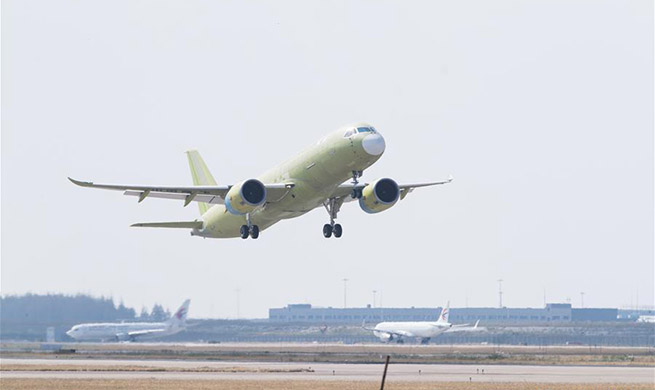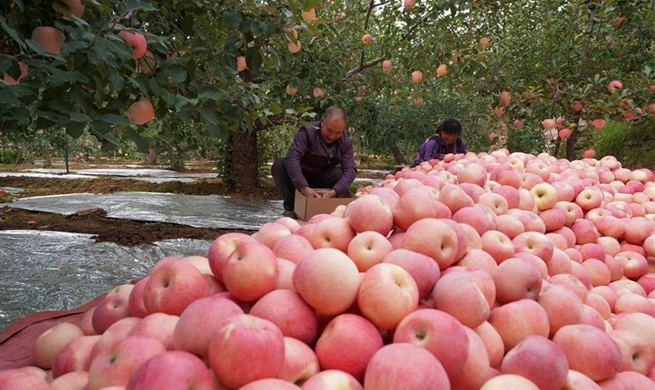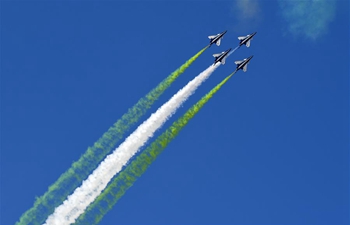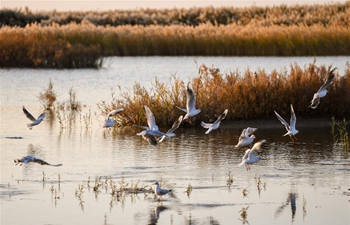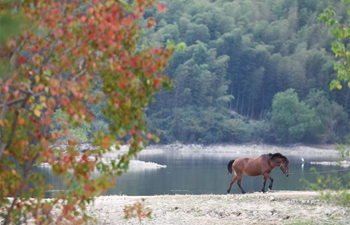CANBERRA, Oct. 25 (Xinhua) -- Local and overseas tourists have this week flocked to Uluru, the sacred Aboriginal site in the middle of Australia, before a climbing ban comes into effect on Saturday.
Rangers reported that tourist numbers had skyrocketed in the past month, as visitors from interstate and overseas take advantage of their one last chance to climb the rock, while officials have called for respect for traditional culture.
The Australian Broadcasting Corporation (ABC) reported there were an extra 10,000 visitors to Uluru-Kata Tjuta National Park per month in the past six months leading up to Saturday's closure.
However, on Friday morning, strong winds meant rangers had to close Uluru, disappointing the queues of tourists who had gathered before daybreak to make their final climb.
So far, rangers at Uluru have decided to re-open the climb and almost 100 people have already begun climbing. It will be closed permanently at 4.00 p.m. Friday afternoon.
Uluru is considered to be a place of spiritual significance by its indigenous custodians, the Anangu people, who have pleaded with tourists not to climb it for many years.
But they haven't enforced an outright ban. That will finally happen Saturday when no one will be allowed to make the steep ascent to the top of the monolith.
Uluru custodian Leroy Lester told the ABC there were several reasons why Anangu wanted the climb closed.
"Mainly because it's a sacred site and mainly because for safety reasons, pollution on top, no toilets up there and E. coli killing all the organisms, all the frogs and everything," he said. "And it's very, very dangerous."
Thirty-seven people have died in Uluru's history while trying to make the climb.
Lester said the large number of people travelling to climb the rock in the face of objections by traditional owners represented a clash of cultures in Australia.
Indigenous Affairs Minister Ken Wyatt said he had been disappointed by the large numbers of people rushing to climb Uluru before it closes.
"I understand there are people that want to put it on their bucket list," he said. "It would be equivalent to having a rush of people wanting to climb over the Australian War Memorial.
"Our sacred objects, community by community, are absolutely important in the story and the history of that nation of people."
Wyatt said people who have climbed Uluru in the past should reflect on how they've disrespected traditional owners.
"I wouldn't want to curse anybody nor leave them with negative elements of life," he said. "But reflect back what you've done and reflect back on the fact you've disrespected a community of traditional owners who have always wanted the right to have a say about what is sacred to them."


